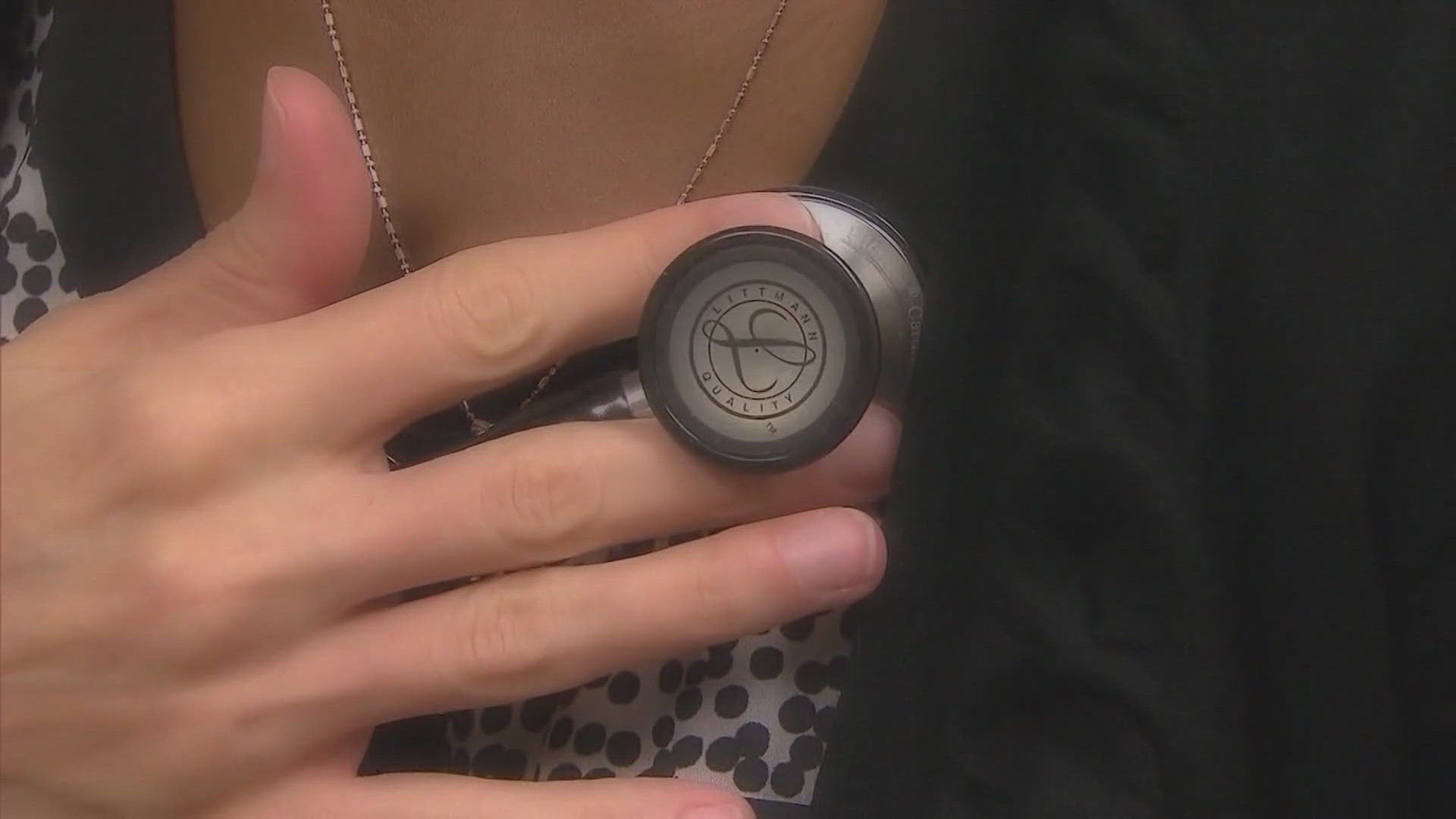MAINE, USA — It's a condition that affects more than two million women every year.
Menopause has often been a stigmatized topic, but talking about it is becoming more mainstream as women are seeking new medications to treat their symptoms.
Some of those new drugs can be hard to access because they aren't covered by insurance.
Susan Miele was the head of HR for a large company when she started having debilitating symptoms.
"I had brain fogginess, forgetfulness, irritability," Susan recalled.
Susan, then a mom to a five-year-old girl, was in early-onset menopause.
"It came very fast and ended very fast, and I was fully menopausal at 43," Susan added.
Susan left her job and spent seven years undiagnosed and untreated for her symptoms. Susan now sees Dr. Robin Noble, an OBGYN and a certified menopause provider at InterMed.
Dr. Noble says menopause is a time when menstruation ends. Patients enter this phase 12 months after the last period, with the average age being 51. However, symptoms can begin during perimenopause, which can start in the late 30s or early 40s.
"There are heightened PMS symptoms, breast tenderness, bloating, changes in their bleeding patterns, migraine, joint pain, a whole host of symptoms," Dr. Noble explained.
Studies show that many menopausal women aren't getting any treatment and often don't even talk about it with their doctors.
But Dr. Noble says women don't have to suffer through this phase of life. There are several treatment options, including hormone therapy. There are new drugs to treat symptoms, namely hot flashes, but insurance companies either won't pay for them or make women try and fail with other treatments.
"Sometimes, they must pay out of pocket or go through those hoops and try various things," Dr. Noble explained.
As for Susan, hormone therapy put her on the right track to a healthy life. She speaks publicly and encourages women to advocate for menopause care, especially in the workplace.
"Are we covering hormone replacement so it's accessible for people? That's another problem: it's not always accessible and inexpensive; patients have to pay out of pocket.
Dr. Noble is the founder and medical director of the nonprofit letstalkmenopause.org.
The site provides free information and resources about the condition and timely information in light of the barrage of products flooding the market.
"They are profiting off menopause, these companies, they are selling them all sorts of supplements that are unregulated," Dr. Noble said.
Congress is also considering a bill, Advancing Menopause Care and Mid-Life Women's Health Act, as more women are breaking the stigma and speaking about symptoms and their impact on their lives.

